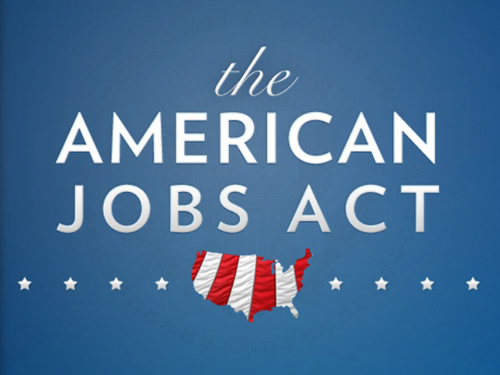By Duncan Cork
The ban on General Solicitation in the US has been lifted!
Filmmakers are now able to advertise their fundraising publicly, so long as they make “reasonable efforts” to ensure that investors financing the film are accredited. This historic day comes with caveats though. So we advise all filmmakers seek out legal counsel before taking advantage of General Solicitation. Here’s what we know…

The SEC’s rules for Title II of the JOBS Act became law today. This post will address mostly what you can do now. However, the SEC has also suggested further proposed rules which will go into effect another 60 days after the SEC has taken into account comments from the public. These should be considered for the long fundraising periods associated with film financing.
As of today, filmmakers are able to market their fundraising publicly, which means Tweeting, Facebooking, shouting from the rooftops, and taking billboards out on Sunset Boulevard.
However, under Rule 506c (the rule allowing for General Solicitation),filmmakers must make “reasonable efforts” to verify that their investors are “accredited”. The process of verifying an investor’s accreditation depends onhow an investor defines him/herself as accredited. It is an onerous process that involves investors providing filmmakers with two years of tax returns, or relevant bank statements/brokering statements/credit reports and more.
Investors may not be comfortable giving over this information to filmmakers directly, so the SEC has allowed regulated third parties to take on the essential due diligence. Investors may be happier being verified by a third party to prevent sensitive information being mismanaged by filmmakers. A regulated entity can be:
- A Registered Investment Advisor
- A Broker-Dealer
- An Attorney
- A CPA (Certified Pubic Accountant)
Filmmakers also need to ensure that anyone participating in the fundraise do not fall under the BAD ACTOR provisions. This includes investors, investment advisors, producers or anyone else mentioned in the fundraising documentation. BAD ACTORS are individuals that have committed a crime, fraud, etc. For more on these provisions, read here.
One new requirement that filmmakers need to do in order to generally solicit, is to file a “Form D” with the SEC, which most filmmakers do not do when soliciting funds privately. This form lets the SEC know that you are raising money using an exemption. Under today’s law, if you are using general solicitation, Form D needs to be filed 15 days after the first investment is made.
Under future proposed rules, the form needs to be filed 3 times:
- 15 days before you use the 506c exemption
- 15 days after the first investment is made
- 30 days following the termination of an offering – i.e. once the fundraising has closed
- All advertising/offering materials used to generally solicit must be filed with the SEC before generally soliciting.
- Filmmakers must file documents with the SEC every time they update their offering materials.
- Suitable investment disclosures must appear on all advertising materials. This information should disclose that only accredited investors are permitted to invest, and to make potential investors aware of risks associated with the investment opportunity. This is impractical for Twitter or Facebook mentions and will require you to seek out securities lawyers in order to write such disclaimers adding upfront cost to the fundraising process.
- Filmmakers could face a 1-year ban from fundraising and be forced to return the investment if they do not adhere to these proposed rules.
There are a lot of people petitioning changes to the proposed rules. Hopefully none of the above will come into law without consideration for smaller issuers – such as independent filmmakers. For a history of the JOBS Act and a longer briefing, read our FILMONOMICS piece here. But to summarize…
THE LAW (EFFECTIVE TODAY)
- Filmmakers must comply with SEC regulatory processes by filing a Form D Exemption 15 days after the first investment is made.
- Filmmakers are limited to offering securities to accredited investors, and are responsible for verifying that investors meet certain net worth or annual income requirements as detailed by the SEC prior to accepting the investment.
PROPOSED RULES (POSSIBLY IN EFFECT EARLY 2014)
- Filmmakers must comply with SEC regulatory processes by filing a Form D Exemption 15 days before publicly discussing their fundraise.
- Filmmakers must amend the Form D 15 days after the first investment.
- Once the fundraising round has closed, filmmakers must amend the Form D within 30 days of finishing fundraising.
- Filmmakers must file documents with the SEC each time offering materials are updated. General solicitation materials must be submitted to the SEC no later than the day of first use.
- Filmmakers must provide a legal boilerplate each time they wish to publicly discuss or share information about their fundraising.
Duncan Cork
CEO of Slated
This post is for educational purposes and does not represent legal advice. To reduce Title II compliance risks and potential penalties, it’s important to consult with your lawyer prior to initiating any general solicitation campaigns via Slated.





